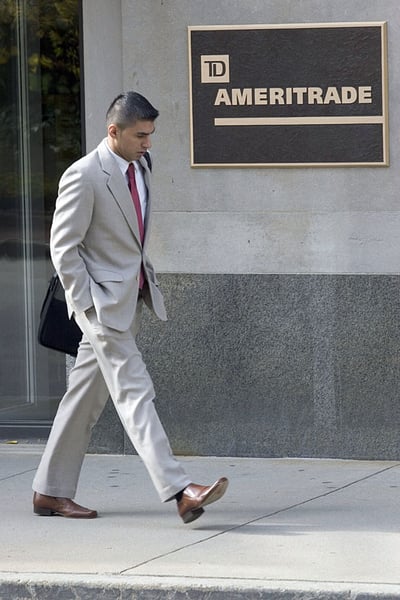Move lauded by industry and consumer groups; 'need to get all the facts out on the table'
Last January, the Securities and Exchange Commission delivered a report to Congress outlining three ways to increase oversight of investment advisers, one of which was to establish a self-regulatory organization for the industry.
TD Ameritrade Institutional has launched a study that it hopes will help sort out the best direction to go.
“We need to get all the facts out on the table,” said company president Tom Bradley. “We decided to take action to see if we could start a productive industry discussion.”
The SEC report, mandated by the Dodd-Frank financial reform law, also recommended allowing the commission to impose user fees to fund adviser examinations or to expand the authority of the Financial Industry Regulatory Authority Inc. to examine advisers who are dually registered as broker-dealers.
Any of the three options requires congressional approval. The report was included in the Dodd-Frank measure because of congressional concern about inadequate adviser oversight. Last year, the SEC examined only 9% of the approximately 11,800 advisers registered with the agency. About one-third have never been audited.
The TD Ameritrade study, which is already under way, is being conducted by James Angel, an associate professor of finance at Georgetown University. Mr. Angel hopes to complete his work by late September.
“They've really given me a clean sheet of paper,” he said. “They wanted an independent, unbiased viewpoint. I don't have an economic dog in this battle.”
Mr. Angel is expanding the study beyond the three options in the SEC report. He's also analyzing whether outsourcing adviser oversight to the accounting industry would be a good idea.
He is using a shoe-leather methodology — meeting and interviewing investment advisers, broker-dealers, regulators and consultants to give the study a “real-world” perspective.” His approach is “almost like an anthropologist, hanging out with industry people and letting them tell me how it works,” Mr. Angel said.
He is still gathering facts.
“I've been learning a lot,” Mr. Angel said. “It's been really fun. If people have insights, I'd be interested in hearing them.” He can be reached at angelj@georgetown.edu.
There is a chance that the report will be completed prior to Congress' weighing in on the topic. The House Financial Services Committee intends to hold a hearing this fall, perhaps as early as September, on the SEC adviser-oversight study, as well as a separate report on fiduciary duty for retail investment advice.
Adviser interest groups are welcoming TD Ameritrade's entry into the debate.
“It's always useful to have independent analysis of these issues,” said Barbara Roper, director of investor protection at the Consumer Federation of America. “TD Ameritrade is a credible source. They've done good work in the past.”
The Certified Financial Planner Board of Standards Inc. also is enthusiastic.
“We applaud TD Ameritrade for launching the study and we look forward to seeing the results,” Marilyn Mohrman-Gillis, the CFP Board's managing director of public policy and communications, said in a statement. “The important outcome for the public is to enhance oversight of investment advisers to increase investor protection and confidence in the markets.”
The CFA and the CFP Board both prefer that adviser oversight remain under the purview of the SEC, although the consumer group said recently that an SRO would be preferable to the status quo.
Many advisers vehemently object to an SRO. They are especially opposed to Finra, which is lobbying to become the adviser SRO. Finra, which currently oversees broker-dealers, has said it would establish a separate regulatory regime for advisers rather than shoehorning them into its broker enforcement program.
Mr. Bradley said that TD Ameritrade has no preconceived notions about an SRO.
“We're Switzerland on who the regulator should be,” Mr. Bradley said, drawing an analogy to that country's historic neutrality. “But we have a strong view on how that regulator should be set up and run. It should be set up like an efficient, effective nonprofit business.”
He does say, however, that regulation should be streamlined rather than expansive.
“We've taken the view that we don't need more regulation,” he said. “We need better regulation.”







